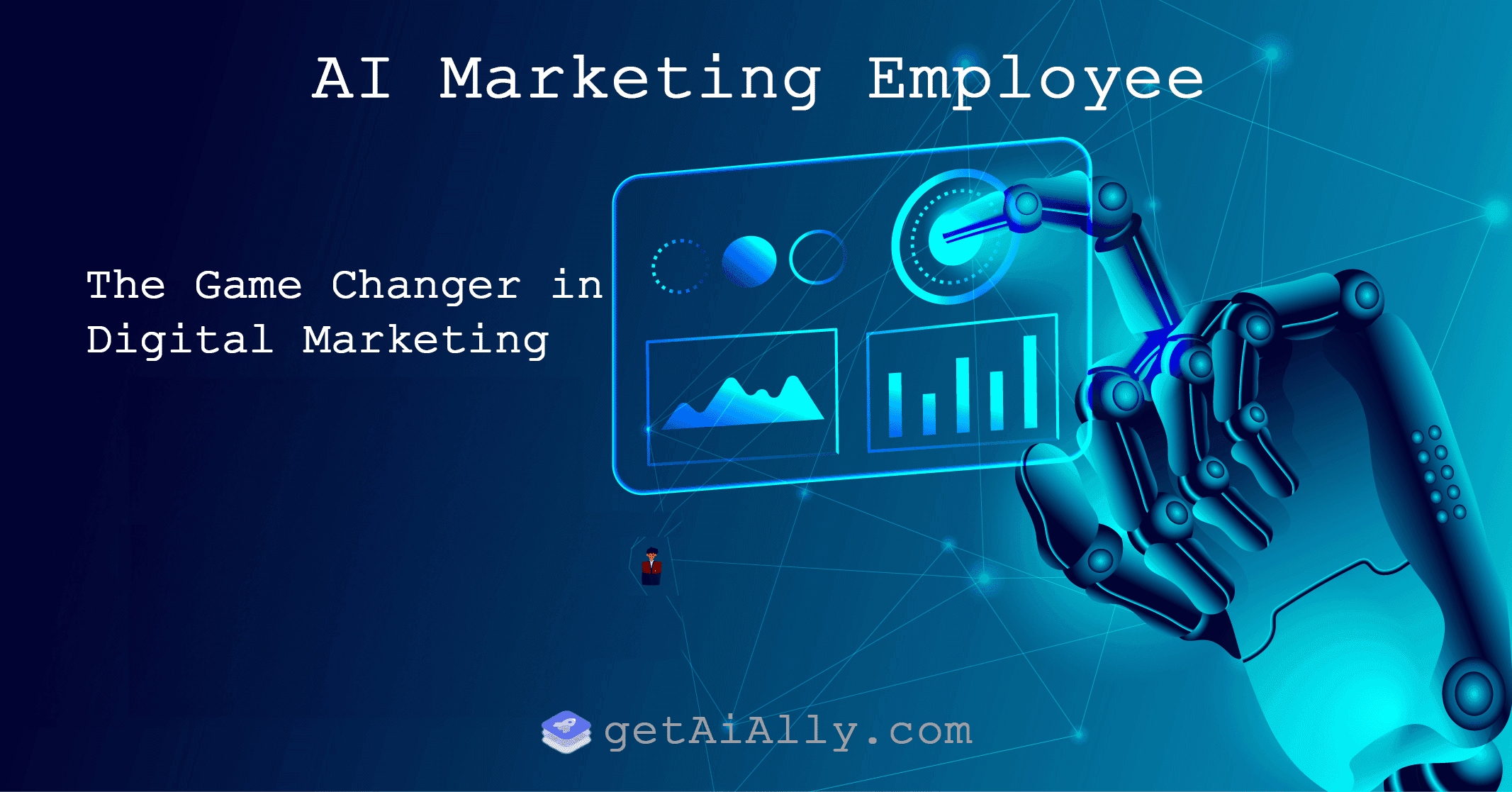Small Team, Big Impact: How AI Employees Help Startups Grow Rapidly

Lawrence Liu
9/15/2024

Small Team, Big Impact: Leveraging AI Employees to Promote Startup Growth
In the highly competitive startup ecosystem, small teams often face the challenge of limited resources. However, the rapid development of artificial intelligence (AI) is fundamentally changing this landscape, providing startups with unprecedented opportunities to expand their influence and accelerate growth. This article will explore how AI employees empower small startup teams, helping them maximize productivity and innovation with limited resources.
1. AI Employees: Game Changers for Startups
AI employees, or AI-driven automation systems, are becoming powerful assistants for startups. They can perform a variety of tasks, from daily administrative work to complex data analysis, and even creative output. For resource-limited startups, AI employees provide a cost-effective way to expand team capabilities without significantly increasing human resource costs.
1.1 Advantages of AI Employees
- 24/7 Working Capability: AI doesn't need rest and can continuously execute tasks.
- Scalability: As the business grows, AI systems can easily scale to handle increased workload.
- Consistency: AI typically outperforms humans in terms of accuracy and consistency in task execution.
- Speed: AI can process large amounts of data and perform complex calculations in extremely short times.
- Cost-effectiveness: In the long run, the cost of AI employees is usually lower than hiring additional human resources.
The above chart visually demonstrates the advantages of AI employees in various aspects. These advantages make AI employees an ideal choice for startups, especially in situations with limited resources. Next, let's explore the specific application areas of AI employees in startups.
2. Application Areas of AI Employees in Startups
The application range of AI employees is broad, covering almost every aspect of startup operations. Here are some main application areas:
2.1 Customer Service and Support
AI-driven chatbots and virtual assistants can:
- Provide 24/7 customer support
- Handle routine inquiries, freeing up human employees to focus on more complex issues
- Collect and analyze customer feedback, providing valuable insights
2.2 Market Research and Analysis
AI systems can:
- Quickly analyze large amounts of market data
- Identify trends and patterns
- Generate market intelligence reports
- Monitor competitor activities
2.3 Product Development
AI can play an important role in the product development process:
- Analyze user feedback and behavioral data to guide product improvements
- Conduct predictive analysis to help identify new product opportunities
- Automate testing processes to accelerate product iteration
2.4 Marketing and Sales
AI employees can significantly enhance marketing and sales efficiency:
- Personalize marketing content and recommendations
- Optimize ad placement
- Predict the quality of sales leads
- Automate follow-up processes
2.5 Financial Management
In the financial field, AI can:
- Automate accounting and reporting processes
- Conduct predictive financial analysis
- Identify cost-saving opportunities
- Monitor financial health indicators
As can be seen from the above chart, AI employees have wide applications in various fields of startups. This diversity makes AI employees an indispensable asset for startups. But how to effectively implement an AI employee strategy? Let's continue to explore.
3. Strategies for Implementing AI Employees
For startups, effectively implementing an AI employee strategy is crucial. Here are some best practices:
3.1 Identify Suitable Application Areas
- Evaluate current business processes and identify areas that can benefit most from AI automation.
- Start with areas that have the greatest impact on business and are relatively easy to implement.
3.2 Choose Appropriate AI Solutions
- Consider scalability and integration capabilities.
- Evaluate whether custom solutions are needed or if ready-made AI services can be used.
- Ensure the chosen solution fits your budget and technical capabilities.
3.3 Data Preparation and Management
- Ensure sufficient high-quality data is available to train and optimize AI systems.
- Implement robust data management strategies, including data collection, storage, and security.
3.4 Training and Change Management
- Provide necessary training for human team members to enable them to collaborate effectively with AI systems.
- Manage expectations, clarify the capabilities and limitations of AI employees.
3.5 Continuous Monitoring and Optimization
- Regularly evaluate the performance of AI systems.
- Continuously optimize AI models based on feedback and new data.
The above chart shows the key steps in implementing an AI employee strategy. Following these steps can help startups more smoothly integrate AI employees and gain maximum benefits from them. Next, let's look at some success stories.
4. Case Studies: Startups Successfully Utilizing AI Employees
-
Grammarly: This startup used AI technology to develop a writing assistant tool. Their AI system not only checks spelling and grammar errors but also provides style and tone suggestions to help users improve their writing.
-
Lemonade: This insurtech company uses AI to simplify the underwriting process and handle claims. Their AI system Maya can complete policy quotes in seconds, while AI Jim can process claim requests in extremely short times.
The above chart shows the productivity comparison of these companies before and after implementing AI employees. It can be seen that the introduction of AI employees significantly improved the efficiency and productivity of these startups. However, despite the many benefits brought by AI employees, we also need to recognize some of their limitations.
5. Limitations and Considerations of AI Employees
Despite the many advantages of AI employees, startups need to pay attention to the following points when implementing:
-
Data Privacy and Security: Ensure the use of AI systems complies with data protection regulations.
-
Risk of Over-reliance: Maintain human oversight, avoid complete dependence on AI systems.
-
Technical Limitations: Recognize the limitations of current AI technology, don't expect AI to solve all problems.
-
Ethical Considerations: Consider the ethical impact of AI decisions, ensure fairness and transparency.
-
Continuous Investment: AI technology evolves rapidly, requiring continuous investment to maintain competitive advantage.
The above chart shows the growth trend of AI employee adoption by startups in recent years. Despite some challenges, more and more startups are recognizing the value of AI employees and incorporating them into their teams. This trend is expected to continue growing in the coming years.
6. Future Outlook: A Startup Ecosystem of AI and Human Collaboration
As AI technology continues to advance, we can envision a startup ecosystem of deep collaboration between AI and humans:
-
Hyper-personalized Customer Experience: AI will be able to create highly personalized product and service experiences.
-
Intelligent Decision Support: AI will provide more complex decision support for founders and teams, helping them navigate complex business environments.
-
Innovation Accelerator: AI will become an active participant in the innovation process, providing new ideas and solutions.
-
Adaptive Organizations: With AI, startups will be able to adapt to market changes faster, achieving true agility.
-
New Startup Models: We may see entirely new startup models emerge, built on the foundation of AI capabilities.
Conclusion:
AI employees are changing the way startups operate, enabling small teams to achieve greater impact with limited resources. By strategically implementing AI solutions, startups can improve efficiency, accelerate innovation, enhance customer experience, and gain advantages in competitive markets.
However, successfully leveraging AI employees requires careful planning, continuous optimization, and attention to ethical considerations. Startups should view AI as a powerful collaborative tool, not a replacement for human employees, that can enhance human creativity and decision-making abilities.
As AI technology continues to develop, we can expect to see more exciting possibilities emerge. Startups that can effectively harness the potential of AI employees will be well-positioned in the future business landscape. By embracing this new paradigm of human-machine collaboration, startups can break through traditional limitations and achieve unprecedented growth and innovation.
In this AI-driven era, small teams can indeed make a big impact. The key lies in wisely utilizing AI technology, combining it with human creativity, insight, and strategic thinking. In this way, even the smallest startups can dedicate themselves to disrupting industries and changing the world. The future belongs to innovators and entrepreneurs who can effectively harness the power of AI.
Related Posts

AI-Driven Personalized Marketing: Redefining the New Paradigm of Customer Experience
Dive deep into how AI marketing employees are revolutionizing personalized marketing strategies. From precise customer profile construction to dynamic content generation, understand how AI creates unprecedented personalized customer experiences.

AI Marketing Employee: A New Paradigm for Data-Driven Decision Making
Explore how AI marketing employees are revolutionizing data processing and analysis. Learn how this groundbreaking technology provides real-time insights, optimizes decision-making processes, and drives precision in marketing strategies.

AI Marketing Employee: The Game Changer in Digital Marketing
Explore how AI marketing employees are revolutionizing the digital marketing landscape. Learn how this groundbreaking technology enhances efficiency, precision, and creates unprecedented value for brands.




